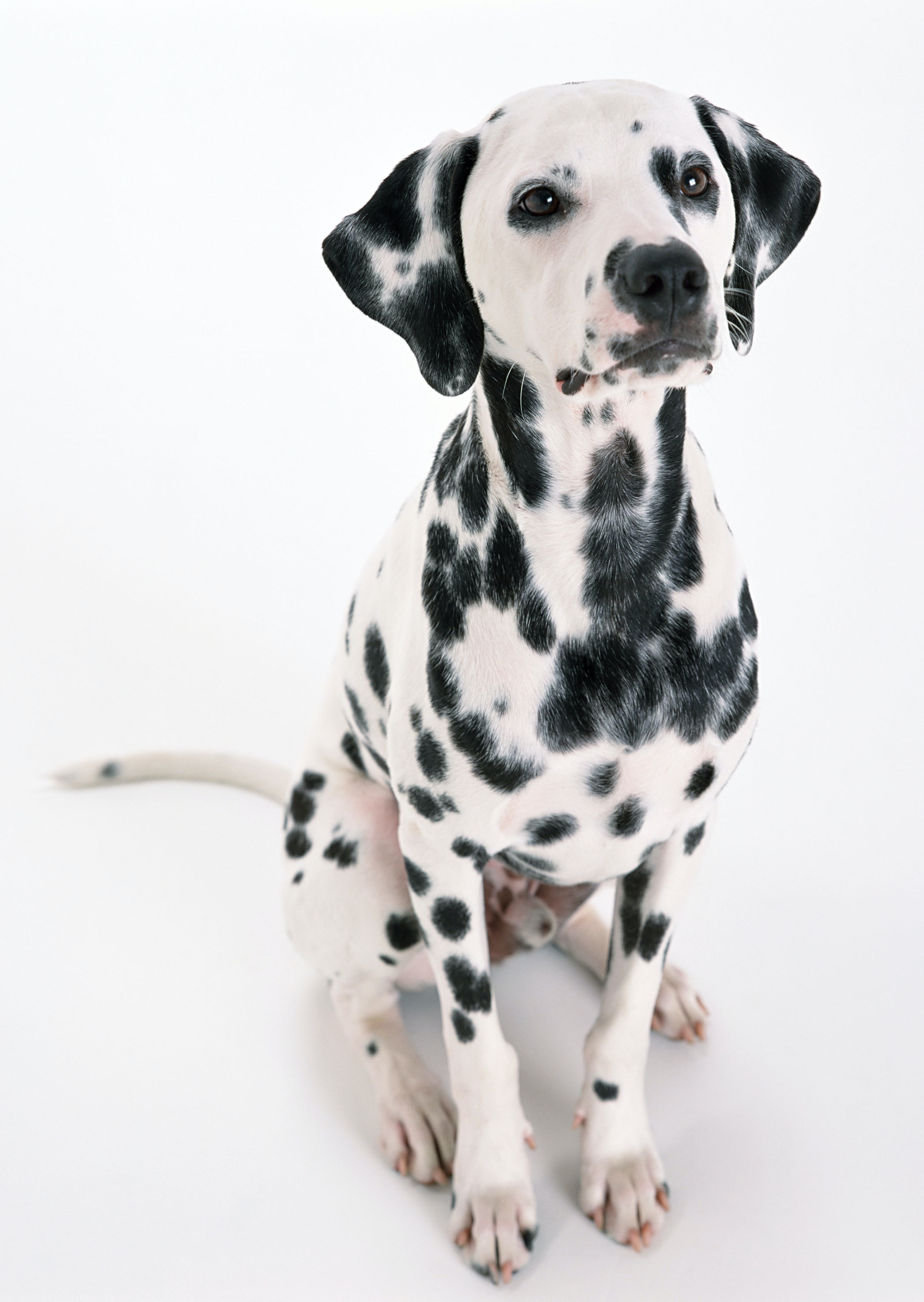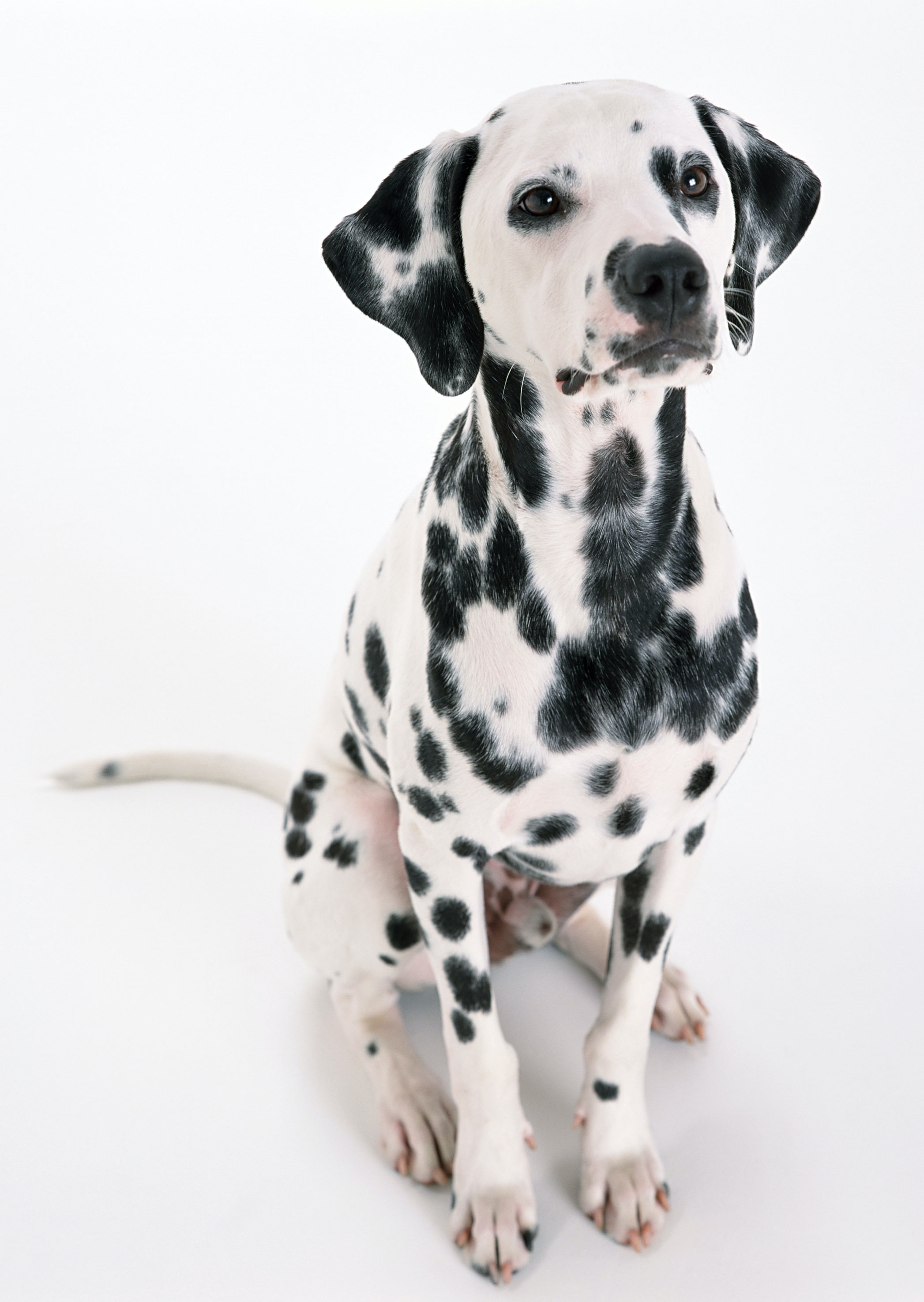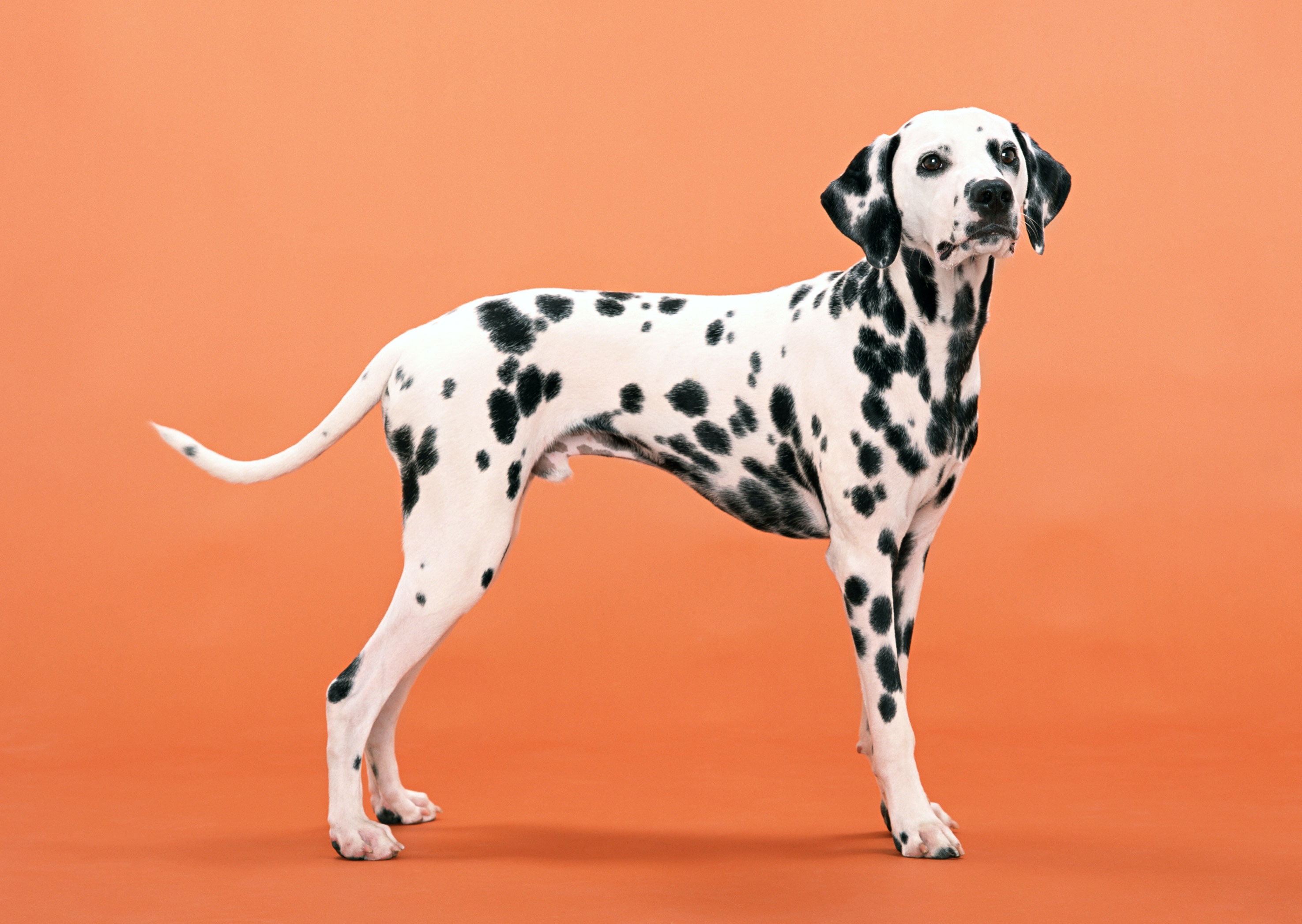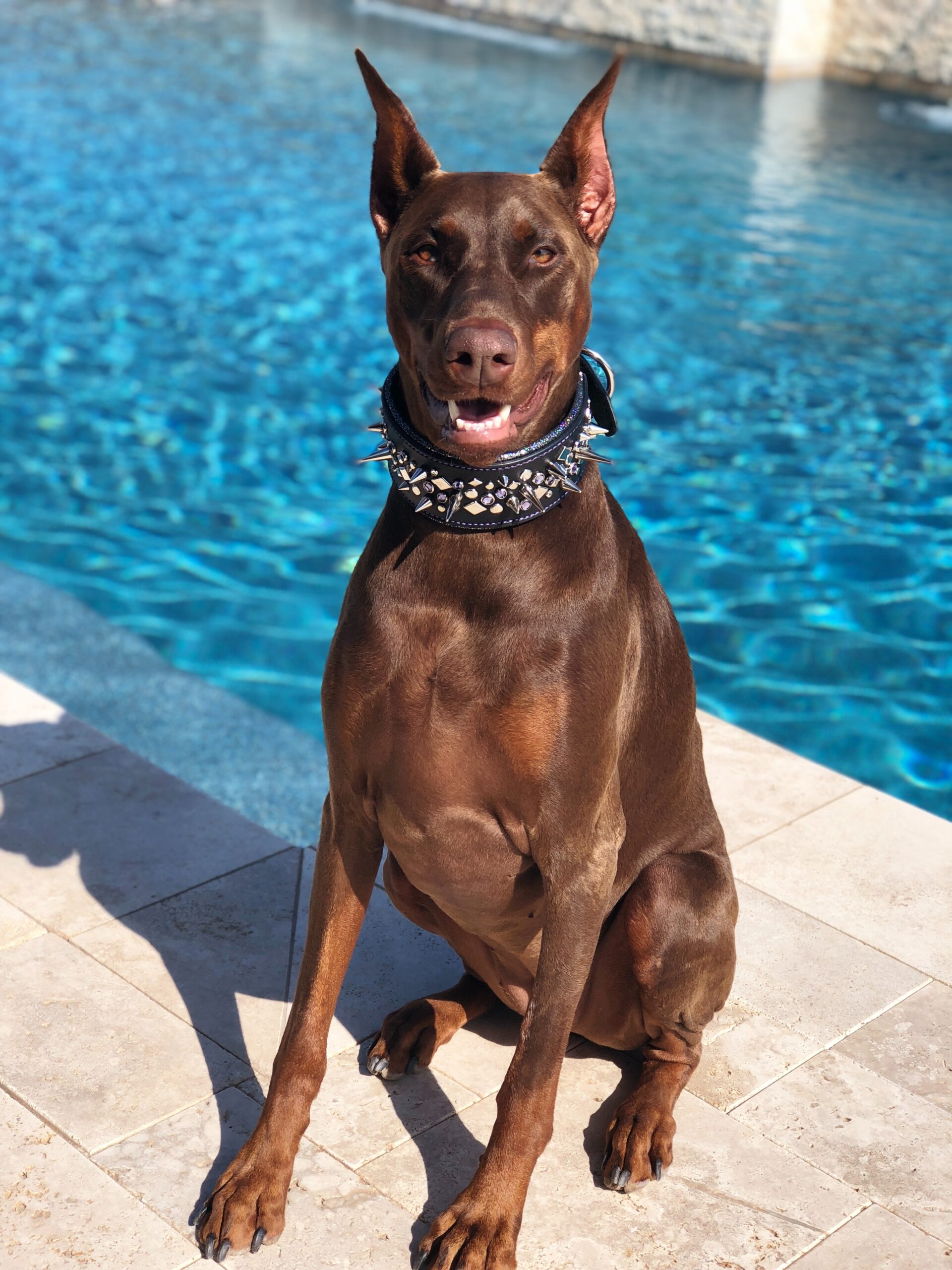
The Dalmatian, instantly recognizable by its striking black or liver-spotted coat, is a breed deeply rooted in history, with origins that can be traced back to ancient times across Europe and Asia. Originally used as a guard dog, hunter, and later as a carriage dog, its stamina and alertness made it particularly effective as a firehouse mascot, clearing paths for fire trucks in times before the automobile. Boasting a lean, muscular frame and a dignified demeanor, the Dalmatian combines both elegance and athleticism. Beyond its notable appearance, it is celebrated for its intelligence, loyalty, and spirited personality, making it a cherished family companion.
The Dalmatian is a member of the AKC Non-Sporting Group.
Breed Characteristics
| Dog Breed | Dalmatian |
| Breed Popularity (AKC) | 49 |
| Country of Origin | Croatia |
| Personality | Alert/Responsive |
| Life Expectancy | 11-13 yrs |
| Height | 19-24 in |
| Weight | 45-70 lbs |
| Color | Black & White, White & Liver Brown |
| Coat | smooth, short |
| Shedding | Frequent |
| Grooming | Weekly Brushing |
| Health Problems | |
| Trainability | Agreeable |
| Exercise Needs | Energetic |
Dalmatian History
With a history that’s debated, the Dalmatian is recognized as a breed of Croatian origin from the Dalmatia region. Historically, they’ve been used for various roles, from border guards in Dalmatia to circus performers. However, they’re best known for their role as carriage dogs in England, trotting alongside coaches and later, as firehouse mascots. Their distinctive spotted coat and unique job roles have made them one of the most iconic breeds in the dog world.
Temperament
Dalmatians are known for their distinctive spots and energetic behavior. They are intelligent and can be trained effectively, though they occasionally display a stubborn streak. Their friendly demeanor makes them suitable family pets, but their high energy level requires regular exercise. Socialization ensures they maintain their friendly disposition around other dogs. They have a moderate barking tendency and are notably good with children. Their playful and affectionate nature, combined with their unique appearance, makes them standout companions.
Remember, while breed traits provide a general idea, individual dogs can have personalities that differ from the breed standard. Always spend time getting to know the dog and ensure their needs and temperament align with your lifestyle.
Grooming Requirements
Dalmatians are known for their distinct spotted coat which is short and dense. Regular brushing helps remove loose fur. Bathing should be done occasionally using a dog shampoo that won’t strip their coat’s natural oils. Regular grooming practices like nail trimming and ear checks are essential for this breed.
Dalmatian Health
Dalmatians, with a lifespan of 10-13 years, have unique health needs. Regular vaccination, flea prevention, and deworming are critical. They are prone to certain genetic health issues, and a diet rich in nutrition, complete with quality dog food and treats, is recommended. Neutering or spaying can also be beneficial for their overall health.
Exercise Needs
Dalmatians are known for their stamina and energy. Regular vigorous exercise, like long walks or jogs, is essential. Fetch games and agility sessions cater to their activity levels. Trips to the dog park offer playtime and socialization opportunities. Their background as carriage dogs means they’ll enjoy structured games and activities.
Training
Dalmatians, iconic for their spotted coats, flourish with consistent obedience training. Using precise commands, potty training can be seamless, and crate training gives them a sanctuary. Their energetic nature means behavior problems can arise if not mentally stimulated, necessitating early intervention. Regular socialization ensures they remain sociable and get along well with kids and other animals.
Dalmatian Pictures



Related Dog Breeds
More Dog Resources
Are you thinking about getting a puppy? Make sure to check out our list of important questions to ask before you adopt a puppy.
We also have many resources to help, from naming your puppy to socialization resources and training tips.
Take me back to the Ultimate Guide to Dog Breeds



